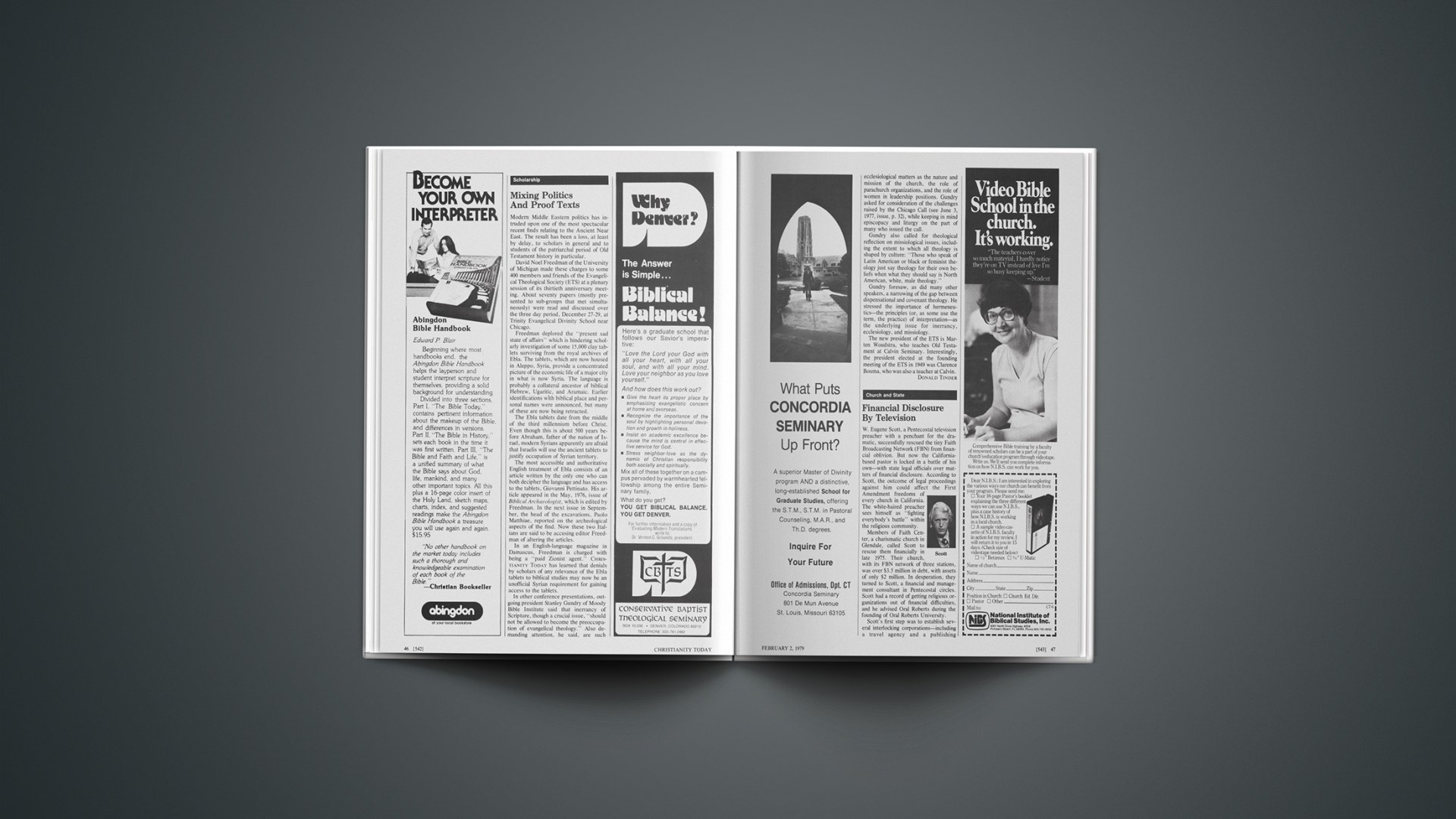Modern Middle Eastern politics has intruded upon one of the most spectacular recent finds relating to the Ancient Near East. The result has been a loss, at least by delay, to scholars in general and to students of the patriarchal period of Old Testament history in particular.
David Noel Freedman of the University of Michigan made these charges to some 400 members and friends of the Evangelical Theological Society (ETS) at a plenary session of its thirtieth anniversary meeting. About seventy papers (mostly presented to sub-groups that met simultaneously) were read and discussed over the three day period, December 27–29, at Trinity Evangelical Divinity School near Chicago.
Freedman deplored the “present sad state of affairs” which is hindering scholarly investigation of some 15,000 clay tablets surviving from the royal archives of Ebla. The tablets, which are now housed in Aleppo, Syria, provide a concentrated picture of the economic life of a major city in what is now Syria. The language is probably a collateral ancestor of biblical Hebrew, Ugaritic, and Aramaic. Earlier identifications with biblical place and personal names were announced, but many of these are now being retracted.
The Ebla tablets date from the middle of the third millennium before Christ. Even though this is about 500 years before Abraham, father of the nation of Israel, modern Syrians apparently are afraid that Israelis will use the ancient tablets to justify occupation of Syrian territory.
The most accessible and authoritative English treatment of Ebla consists of an article written by the only one who can both decipher the language and has access to the tablets, Giovanni Pettinato. His article appeared in the May, 1976, issue of Biblical Archaeologist, which is edited by Freedman. In the next issue in September, the head of the excavations, Paolo Matthiae, reported on the archeological aspects of the find. Now these two Italians are said to be accusing editor Freedman of altering the articles.
In an English-language magazine in Damascus, Freedman is charged with being a “paid Zionist agent.” CHRISTIANITY TODAY has learned that denials by scholars of any relevance of the Ebla tablets to biblical studies may now be an unofficial Syrian requirement for gaining access to the tablets.
In other conference presentations, outgoing president Stanley Gundry of Moody Bible Institute said that inerrancy of Scripture, though a crucial issue, “should not be allowed to become the preoccupation of evangelical theology.” Also demanding attention, he said, are such ecclesiological matters as the nature and mission of the church, the role of parachurch organizations, and the role of women in leadership positions. Gundry asked for consideration of the challenges raised by the Chicago Call (see June 3, 1977, issue, p. 32), while keeping in mind episcopacy and liturgy on the part of many who issued the call.
Gundry also called for theological reflection on missiological issues, including the extent to which all theology is shaped by culture: “Those who speak of Latin American or black or feminist theology just say theology for their own beliefs when what they should say is North American, white, male theology.”
Gundry foresaw, as did many other speakers, a narrowing of the gap between dispensational and covenant theology. He stressed the importance of hermeneutics—the principles (or, as some use the term, the practice) of interpretation—as the underlying issue for inerrancy, ecclesiology, and missiology.
The new president of the ETS is Marten Woudstra, who teaches Old Testament at Calvin Seminary. Interestingly, the president elected at the founding meeting of the ETS in 1949 was Clarence Bouma, who was also a teacher at Calvin.










